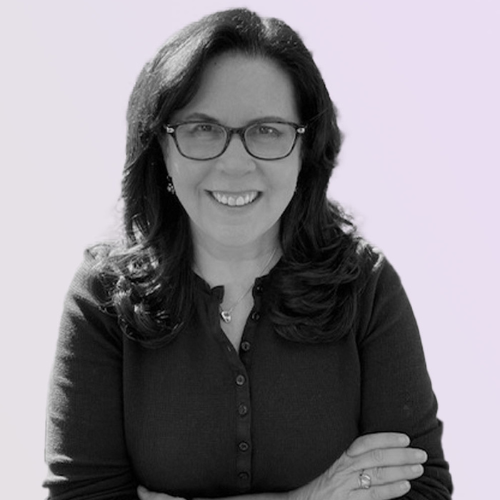Seek meaningful metrics, not just the latest trends
As hoteliers enter the critical phase of budget planning, it’s essential to scrutinize where digital marketing dollars are allocated and what outcomes they drive. With a myriad of platforms available, it’s easy to spread the budget thin without reaping significant returns. The fear of missing out often leads to investments in secondary channels like social media and influencer marketing simply because “everyone else is doing it.” While these platforms might feel essential for certain hotel types or demographics, the key question remains: Are they delivering the desired results?
Strategic shift for 2025
The 2025 budget should reflect a more discerning approach, ensuring every dollar aligns with your hotel’s classification and customer base. Vanity metrics such as “likes” and “followers” look great, but do they translate into bookings? This is the year to explore more meaningful metrics that better align with your hotel’s strategic goals.
Instead of focusing heavily on content production, hoteliers might consider redirecting funds toward targeted distribution channels, like pay-per-click (PPC) advertising. By shifting from paid social media to PPC, hotels can send more focused messaging to the right market segments.
“It’s important to fuel the modes that are working,” said Scott Savitt, senior partner and chief digital officer at Connelly Partners. “Hotels need to understand media attribution to fully realize how to optimize the channel mix for the best results.”

Social media spending: Are conversions following?
Social media often dominates marketing budgets, but the return on investment is questionable. According to data from Tambourine (2023), social media accounts for about 29% of direct booking budgets, yet it contributes only 1% of total marketing revenue. This discrepancy raises a critical question: Are hotels too focused on content production, rather than targeting content distribution?
When people search for hotels, they often start with a Google search, followed by checking social media or Google My Business. Redirecting budget to paid search and pay-per-click ads may yield better results for visibility and conversions. These are the “lower funnel tactics,” according to Savitt, referring to methods that drive consumers closer to booking.
For limited-service hotels, the need for heavy social media spending should be carefully assessed. Would this budget be better spent on more targeted and trackable paid search campaigns? Instead of following the crowd, hotels should differentiate through strategy, focusing on platforms and channels that align with their branding and business goals.
Aligning strategies with business objectives
Milestone Inc. CEO Anil Aggarwal emphasizes the need for alignment between marketing strategies and business goals. “A select-service hotel should spend more on strategies that lead to bottom-of-funnel traffic and conversion, such as paid advertising, optimization of local listings, and content creation aimed at bookings,” he said. “Upscale hotels might focus more on awareness, but social media’s effectiveness is in paid strategies, not just content creation.”
For larger properties such as convention hotels, social media strategies should reflect target segments. If the focus is leisure guests, domestic and international outreach via paid social ads is key. For food and beverage offerings, local geotargeting may be more effective.
“The truth is, targeting parameters inside social media are incredibly powerful,” said Paige Bloom, director of content marketing at Tambourine. “But few hoteliers understand them. If you don’t know what’s possible, you’re not going to include it in your strategy or budget. That’s why we see increased spending on content creation but less on the paid strategies that actually distribute that content.”
A balanced approach to content creation
Almost 45% of social media marketing budgets go to content creation, yet only 14% is allocated to paid distribution. For hotels, this imbalance needs correction. Rather than producing large volumes of content, hoteliers should focus on creating fewer, high-quality pieces that can be distributed effectively over time.
“We see click-through rates and engagement nearly double when the focus is on producing a great piece of content,” Bloom said. “Paid efforts are either amplified or hindered based on content quality. Poor content can cost more in the long run.”
The lesson is clear: Less is more. Strategic investments in a few on-brand content pieces, paired with targeted paid distribution, can deliver better results than a high volume of posts. This approach ensures alignment between marketing efforts and business objectives, whether the focus is on leisure guests, restaurant patrons, or other segments.
Influencer marketing: Is it worth it?
The rise of influencer marketing has created buzz, but hoteliers must assess whether these partnerships generate actual business. For limited-service hotels, influencer marketing might not provide the best value compared to other channels.
However, for luxury and lifestyle properties, influencers can drive awareness and bookings. These partnerships must be carefully chosen, ensuring that influencers have genuine engagement with their audience and that their content aligns with the hotel’s brand.
Leveraging influencers can be particularly effective for special events, such as restaurant launches. Hosting influencers in such cases can generate content, local awareness, and publicity. The key is aligning influencer partnerships with the hotel’s target market and tracking performance.
Embracing AI in digital marketing
Artificial intelligence presents exciting opportunities for hotels to enhance their digital marketing strategies. From analyzing past social media performance to optimizing content distribution, AI can make marketing efforts more efficient.
Milestone’s Aggarwal said, “creation of content using AI is our lowest-hanging fruit. It can offer an immediate efficiency with these helpful technological tools. Hotels should also use AI as ‘agents’ for trip planning and developing itineraries. Internally, it can help with pricing strategies and optimizing your website for search and discovery.”
For example, if a branded hotel chain “implemented AI chatbots on their website and social media channels, these tools can handle inquiries 24/7, providing personalized recommendations and significantly reducing bounce rates on booking pages, leading to an increase in completed bookings,” he said.
A call to action
As competition intensifies, hoteliers must adopt a data-driven, conversion-focused approach to digital marketing. By reevaluating how marketing dollars are spent and prioritizing channels that align with business goals, hotels can ensure every dollar drives meaningful results.
“Hoteliers are facing critical shifts,” Savitt said. “It’s not about chasing trends but ensuring that every marketing dollar serves a strategic purpose.”
Leora Halpern Lanz, ISHC is Associate Professor of the Practice at Boston University’s School of Hospitality Administration (BU SHA) teaching the Experiential Marketing and Digital Marketing courses at the undergraduate and graduate levels. She is also the Executive Director of the School’s new online Master of Management in Hospitality degree. Her career in destination marketing and tourism, branding, marketing communications and press relations spans nearly four decades including long stints at the Greater Boston CVB (now Meet Boston), ITT Sheraton Hotels of New York, HVS, and her namesake consultancy, LHL Communications. She has been at BU SHA since January 2015.




